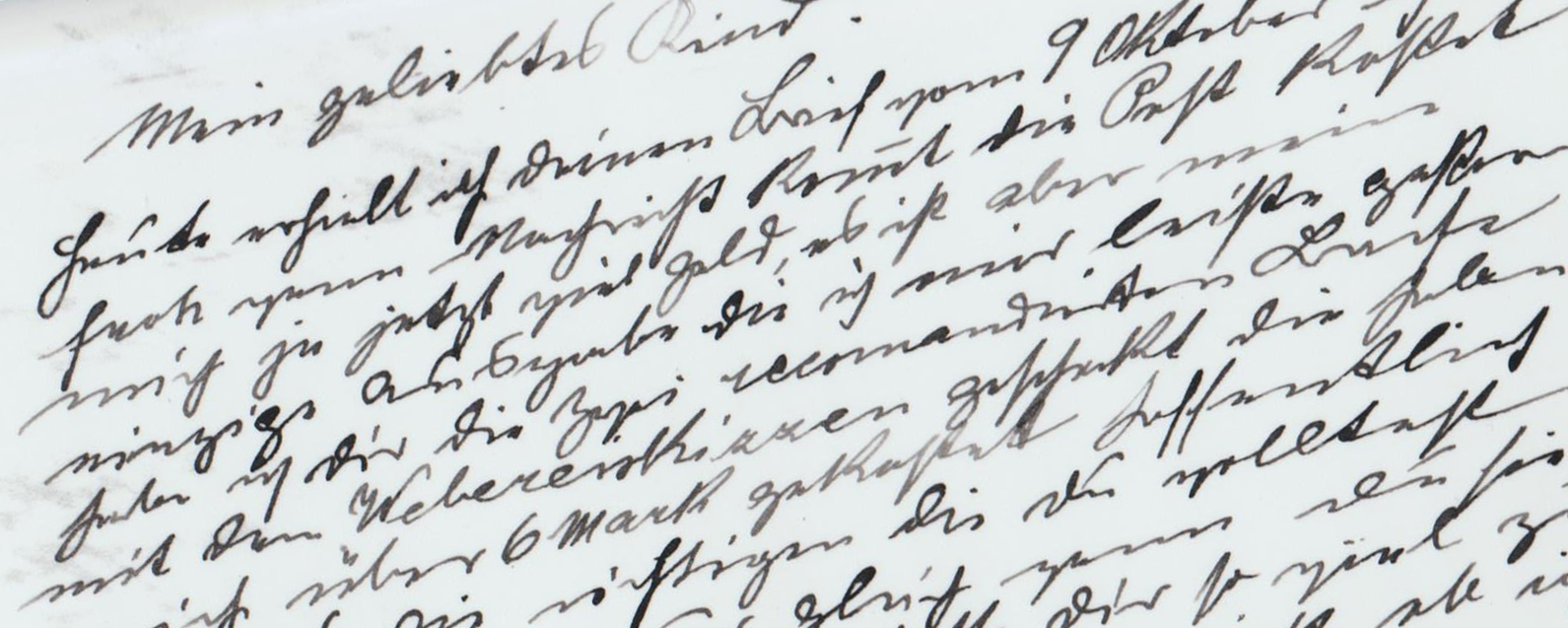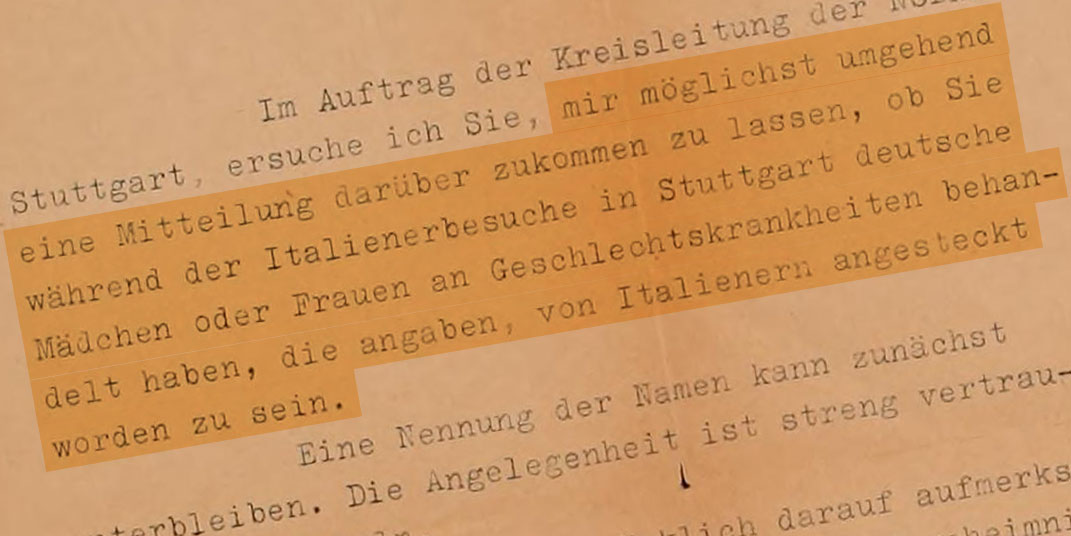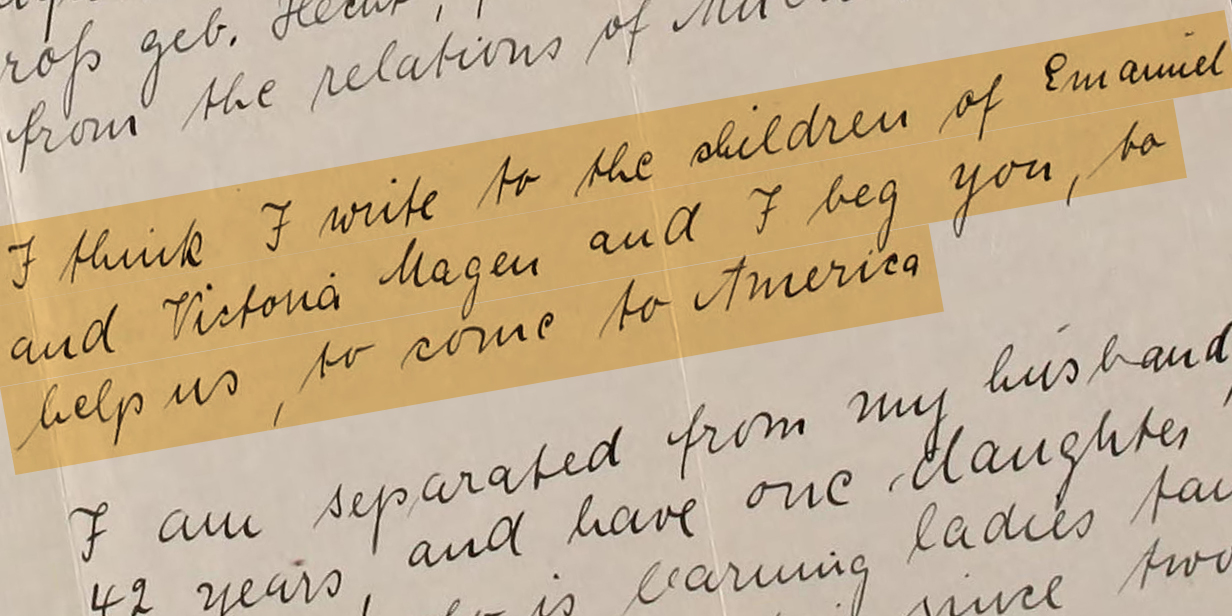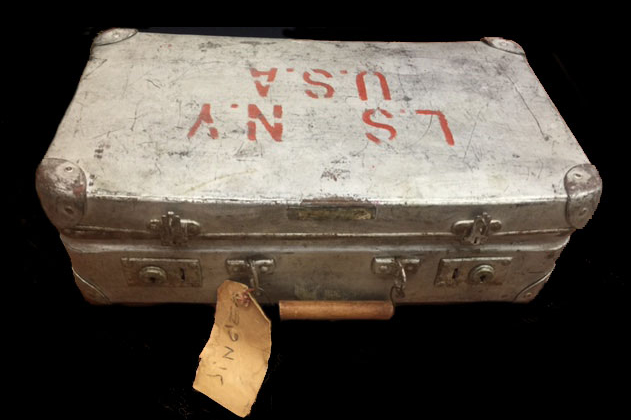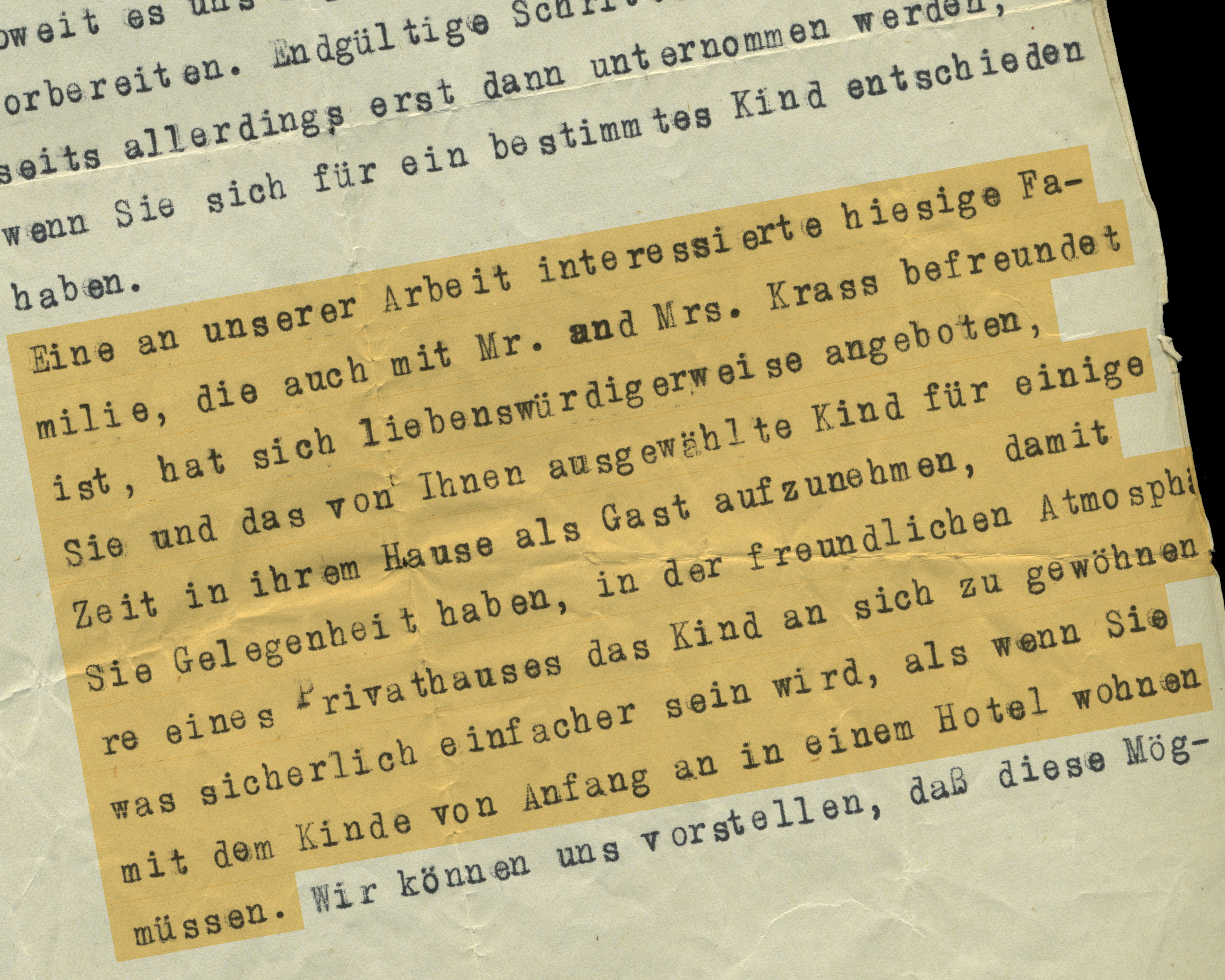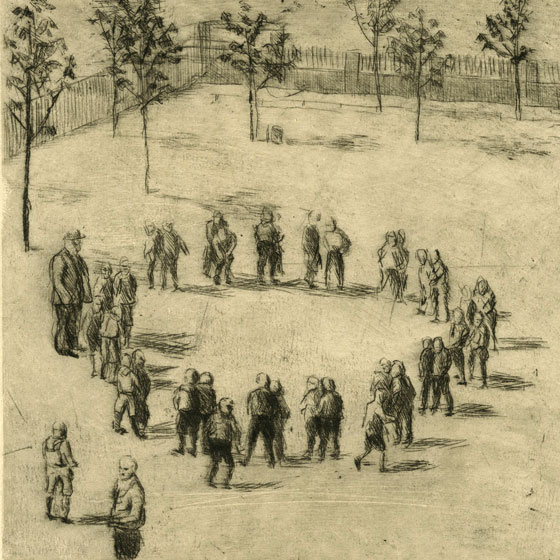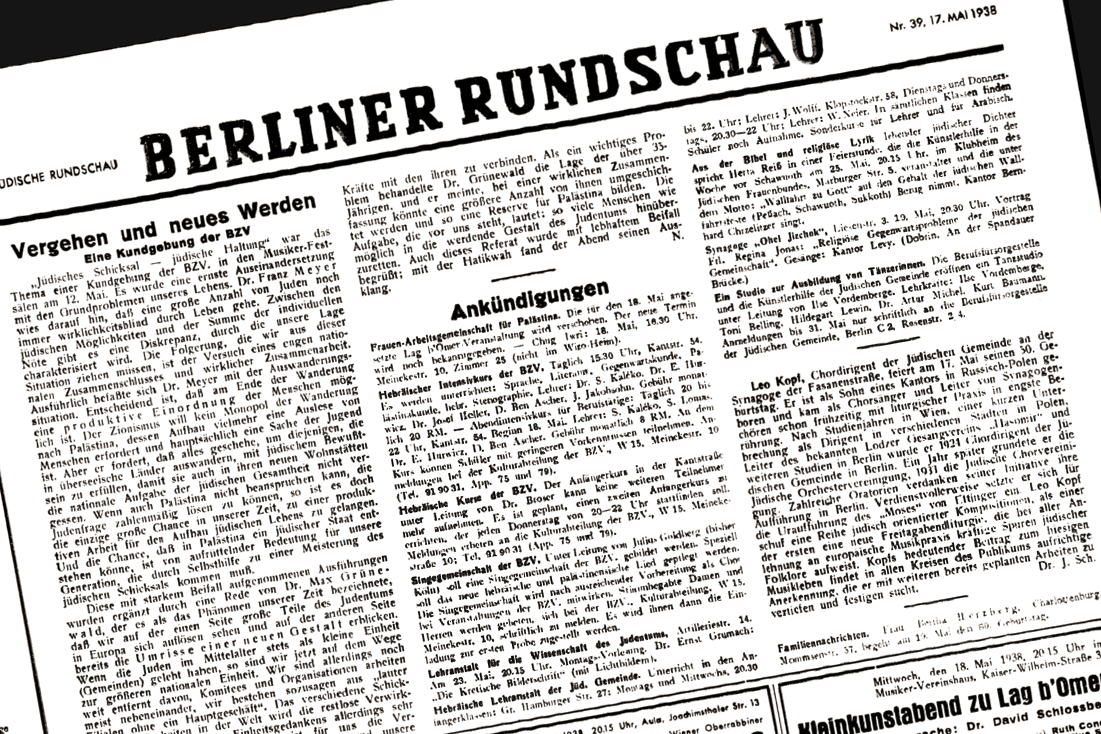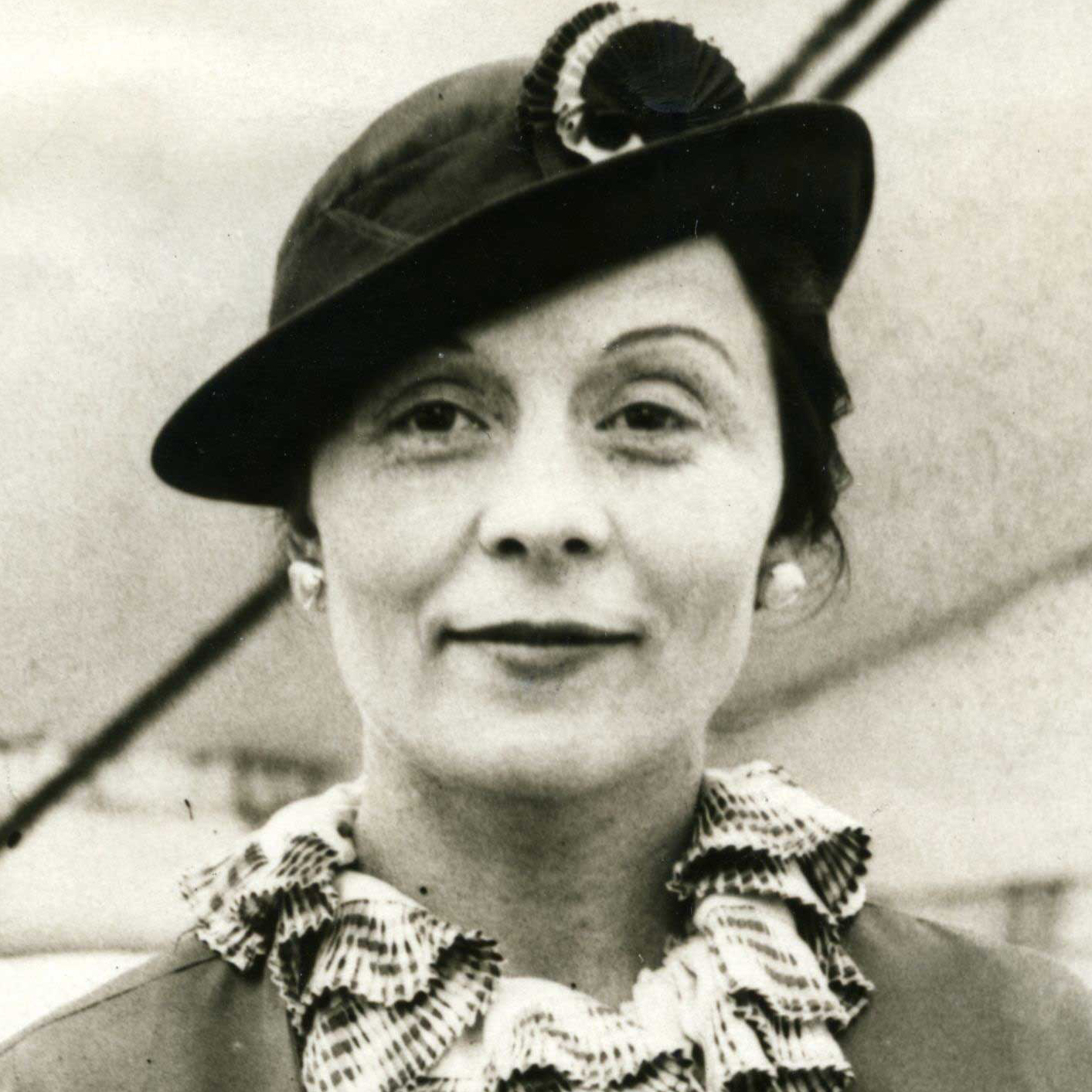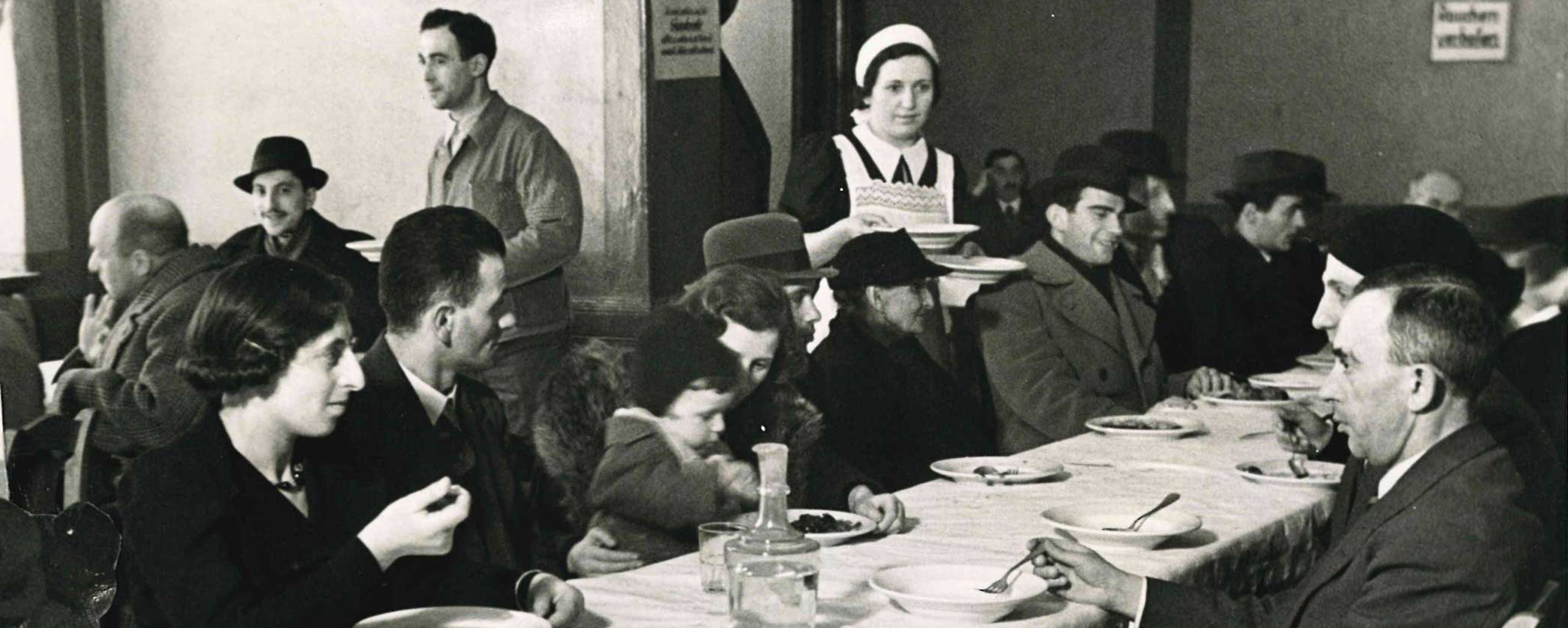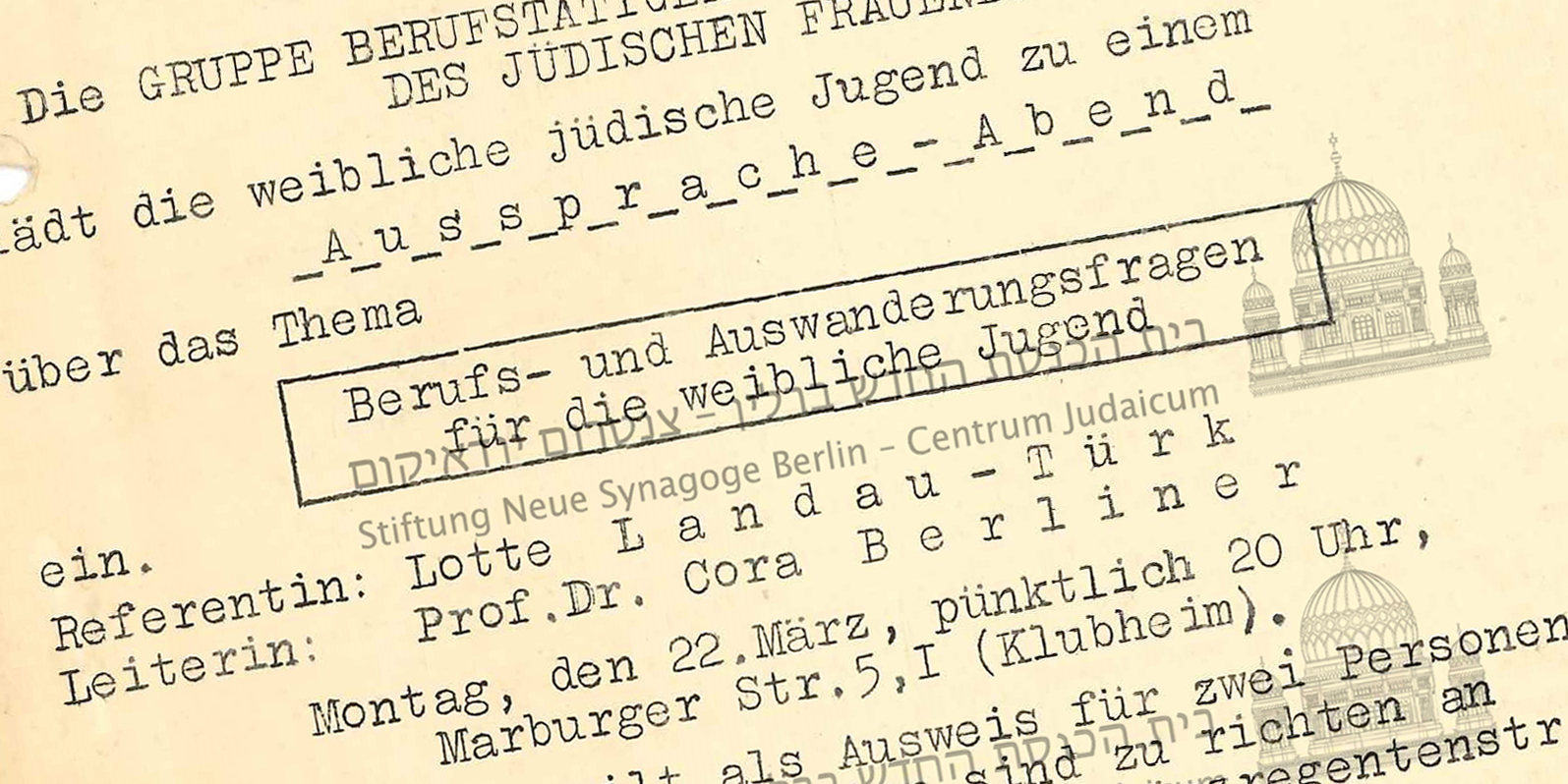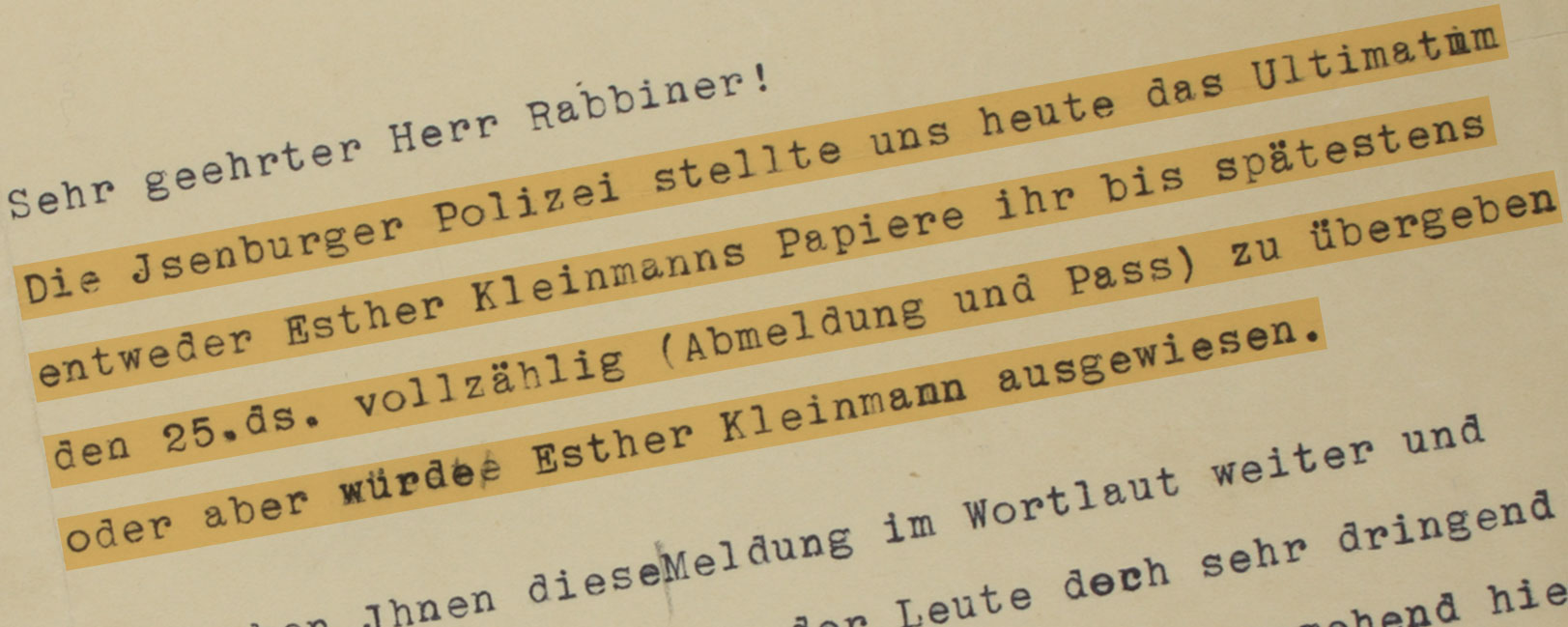Placing trust in strangers
Aid organization takes its responsibility seriously
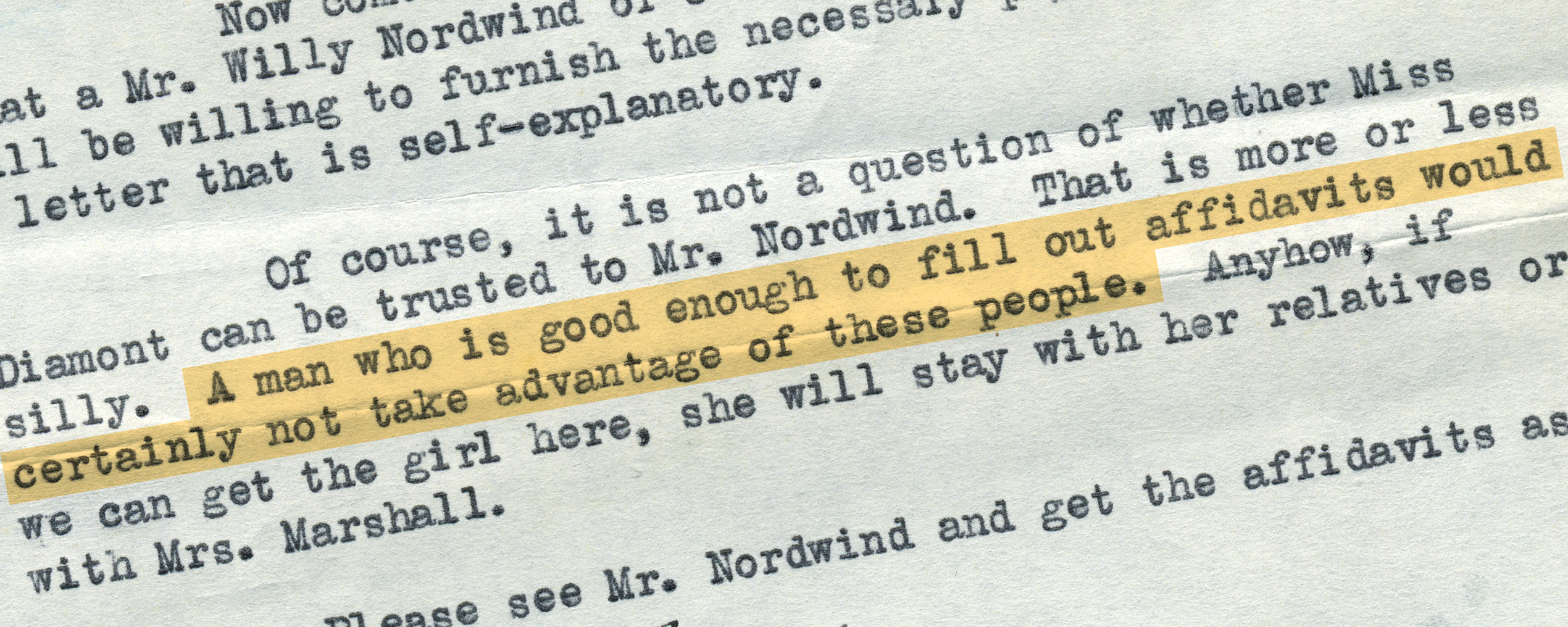
A man who is good enough to fill out affidavits would certainly not take advantage of these people.
New York/Boston
Could Willy Nordwind of the Boston Committee for Refugees—an organization not dealing specifically with unaccompanied child immigrants—be entrusted with the well-being of a 16-year-old girl? The Relief Organization of Jews in Germany was not ready to take chances: rather than just sending Frieda Diamont on her way, the organization turned to the National Council of Jewish Women in New York to ascertain Mr. Norwind’s integrity. The Council’s Merle Henoch passed on the case to Jewish Family Welfare in Boston, Mass., where Nordwind, too, was based. For her there was no doubt: as generous a helper as Willy Norwind must be a trustworthy ally.
SOURCE
Institution:
Leo Baeck Institute – New York | Berlin 
Collection:
Willy Nordwind Collection, AR 10551 
Original:
Source available in English








































